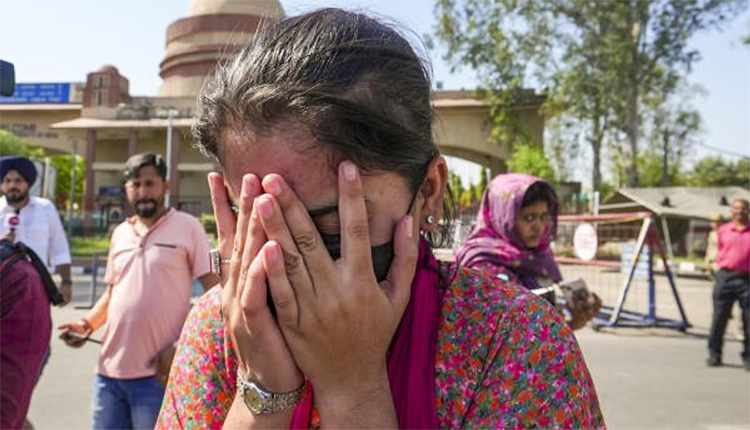New Delhi: On Sunday, April 27 the Indian government ended its deadline order requiring Pakistani nationals to depart from the country due to the Pahalgam Jammu and Kashmir terrorist attack on April 22. Twenty-six casualties from the attack became the catalyst for Indian authorities to enact severe action by terminating Indus Waters Treaty provisions and sealing Attari-Wagah border operations while setting strict departure times for all Pakistani citizens. Jacobs released the restriction deadline on Sunday after hundreds of Pakistani nationals had already left India, but several still stayed in the country at risk of facing Indian legal action.
Arun Mahal, who serves as the protocol officer at the Attari border in Amritsar, reported that 537 Pakistani nationals have travelled through the Attari-Wagah channels to Pakistan, while 1,387 Indian citizens returned from Pakistan during this four-day period. Researchers documented 237 Pakistanis making departures on Sunday, with 116 Indians completing their reentry into their nation. The number of people leaving produced 28 Pakistanis along with 105 Indians on April 24, 191 Pakistanis accompanied by 287 Indians on April 25, 75 Pakistanis with 335 Indians departing on April 26 and the same totals from April 27.
The Indian government has allowed Pakistani medical visa holders to depart from India before April 29, 2025, but the SVES regime expired on April 26. The authorities announced that valid travel document holders among Pakistani nationals can use the Attari border to return until May 1, 2025, before all passenger travel through this border will stop.
The Indian government currently orders all Pakistani nationals in India to depart without delay. All persons must comply with the mandated time, or they will risk deportation alongside possible legal penalties. The Embassy of India used its voice through Foreign Secretary Vikram Misri to establish that these policies represent Indian determination to stop cross-border terror activities, while the Cabinet Committee on Security (CCS) labelled the Pahalgam attack as a Pakistan-based The Resistance Front (TRF) act.
Prospective weddings and family gatherings suffered cancellation due to the mass migration because affected persons displayed disappointment. A Pakistani native to ANI at the Attari border expressed opposition to the attack while criticising border shuttering by saying, “It’s not correct to shut down the border.” Brotherhood between both nations should exist, according to the Pakistani national speaking to ANI at the Attari border. The suspension of border trade at Attari has led local businesses to expect major financial decline because cross-border transactions reached Rs 3,886.53 crore during 2023-24.
The strict diplomatic and security actions from India keep the state of affairs heated. Union Home Minister Amit Shah conveyed to state chief ministers an order to confirm the complete absence of Pakistani nationals from Indian territory by the set deadlines as security agencies step up their patrols of the Line of Control. The United Nations and the international community alongside the United Nations urged Pakistan and India to stay restrained, yet Pakistan selected to bar Indian tourists and stop commercial exchanges.
Border compliance checks have intensified as Indian authorities warn about the upcoming May 1 deadline. The upcoming days represent a vital phase as India executes its guidelines, which creates a substantial change to their relations with Pakistan during a period of rising international geopolitical stress.



Comments are closed.